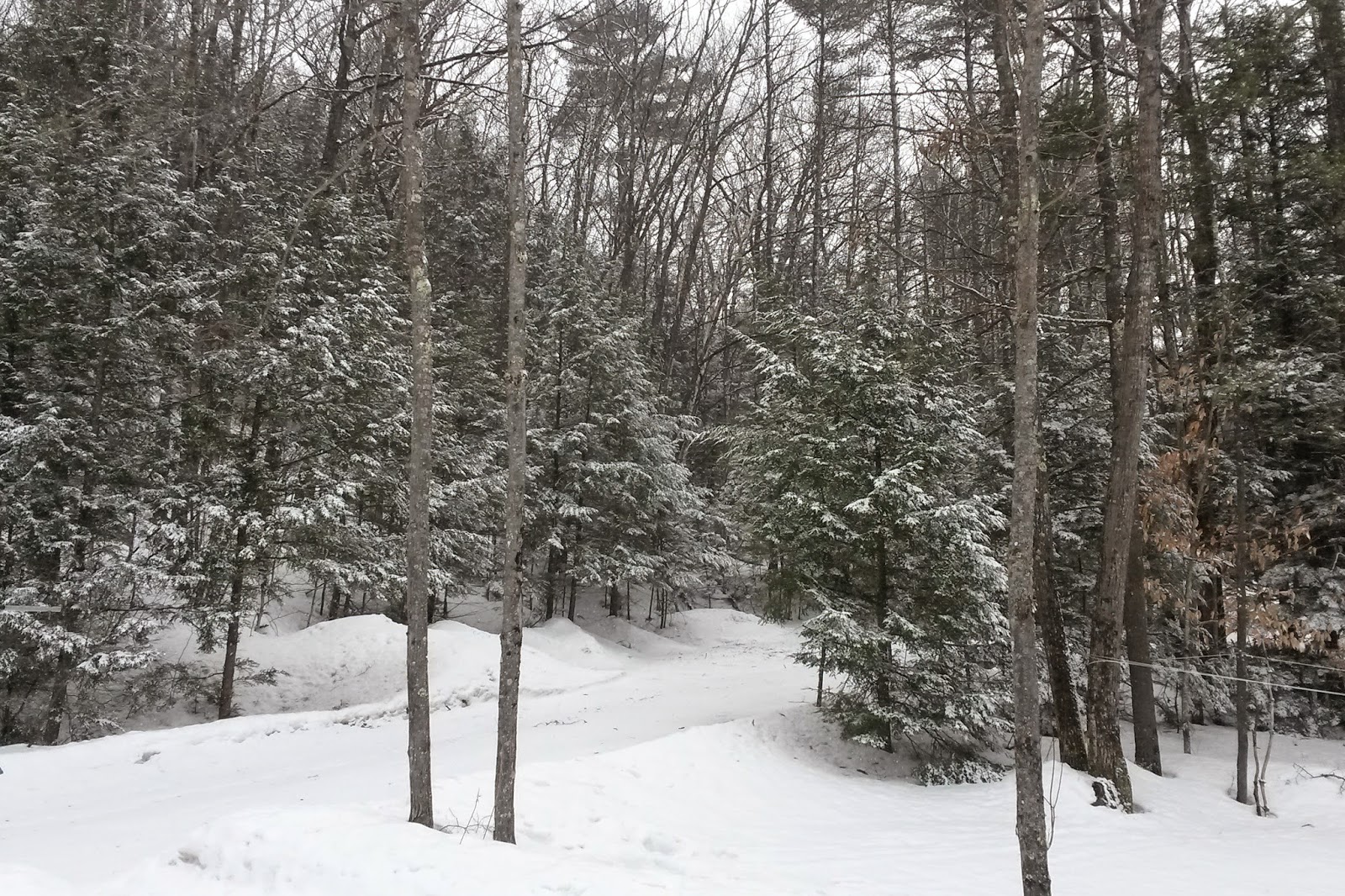This trail pattern is called a "side trot". All of the front foot tracks are on the left, and the hind foot tracks are on the right.
Note that the front foot is larger than the rear, as it is on the fox as well.
 |
| Coyote on Lake Wicwas, January 2012 |
The Wicwas volcano that erupted last week grows. As the lake level continues to be lowered (it's now 10" below full level) to reduce flooding from the spring freshets that will soon pour into Lake Wicwas, the ice slabs continue to be forced skywards. Compare the change over just four days:
 |
| March 21st |
 |
| March 25th |
During a run on one of those warmer days I had a rare spring sighting - a wooly bear caterpillar.
 |
| Wooly Bear Caterpillar (Pyrrharctia isabella) |
I usually see these in the fall. As usual, it was sunning itself on the warmth of pavement - on Chemung Road - having probably just crawled out from the neighboring stone wall. Knowing it wouldn't make it to the next phase of its transformation in that spot, I scooped it up and put it on the shoulder of the road. But instinct is hard to overcome, and it immediately motored directly back onto the road. I placed it farther off the shoulder, and this time it rolled up into its protective crescent shape and played dead, so I went on my way, hoping for the best.
Unlike most caterpillars, the wooly bear overwinters as a caterpillar. It curls up inside its wooly blanket deep in a stone wall or under forest debris, and will freeze solid over the winter. In the spring it will thaw out and form its pupa, eventually becoming a moth that will mate and lay eggs for the next round of wooly bears. The wooly bear is the larval stage of the Isabella Tiger Moth - I will keep an eye out for one of these moths this summer.
 |
| From Wikipedia: http://en.wikipedia.org/wiki/File:Pyrrharctia_isabella.jpg |
Last week I saw my first chipmunk of 2015, and this week I saw their offspring out and about, little tiny 'munks, chasing each other all over on top of the snow. They are rather curious and not very wary of humans yet, staring at me from just a few feet away. They will either learn quickly, or have the same fate the young grey squirrel met last week.
The fox diet seems to be changing, adding in more vegetation with the reduction in the snow pack - much to the relief of the local rodents.
 |
| Fox Scat |
The closest material I can compare it to would be an avocado peel; did this fox perhaps get into someone's garbage?
Thinking about animals and their interaction with humans, there was an unfortunate case of twelve deer dying from being fed by well-intentioned people in the southern part of New Hampshire; you can read about it here. It is never a good idea to feed wild animals - well, except I guess the birds, but even there one must careful for the bears.
With the warmer weather, New Hampshire's fifth season has begun: mud season. (The sixth is black fly season.) This can be, visually, a rather ugly season, even though psychologically it's beautiful, knowing winter is melting away. Even where the mud doesn't show through, the world is rather unsightly due to the ravages of a hard winter being exposed by the receding snow.
 |
| It's been a challenge to keep the forest clean this winter |
Fortunately, that touch of snow yesterday freshened things up a bit.
Now, isn't that better?
Once again, Lake Wicwas was absolutely gorgeous today.






No comments:
Post a Comment